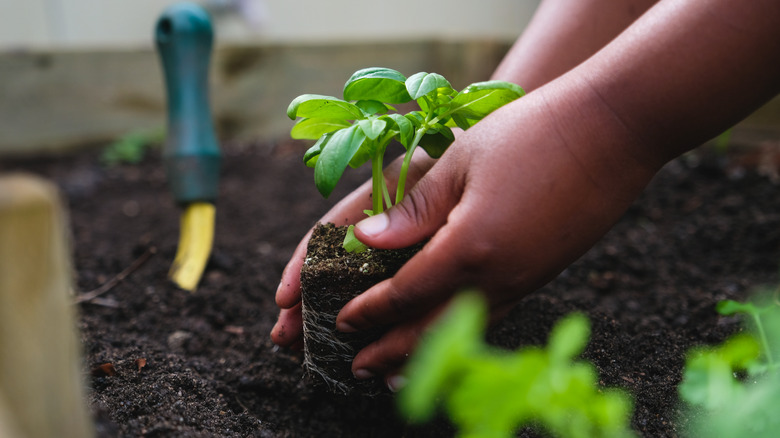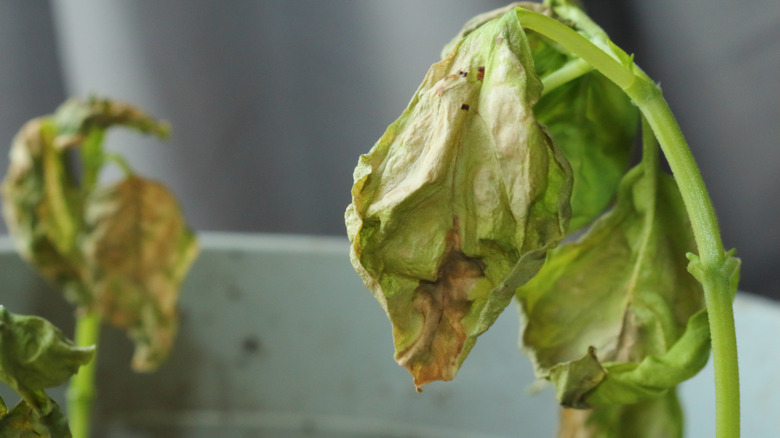The Perennial Herb You Don't Want To Plant Next To Basil In The Garden
Picture this: you're going to your herb garden with shears in tow and arrive at your basil crops. Only, instead of a bundle of vibrant green leaves, your basil is short and stubby. Its fresh, herby scent is nowhere to be found, and your dinner plans are ruined. This can all be a reality if you plant a common rue shrub next to the popular herb. While rue can be a companion plant that keeps pests far away from your roses or raspberries, it's not so forgiving with basil. When planted next to each other, the perennial can inhibit the basil's growth and change its flavor.
Rue has a strong odor, which can repel pests like Japanese beetles and fruit flies, while its vibrant yellow flowers attract butterflies to your garden. The fact that it discourages crawling nuisances and attracts beneficial insects alone makes common rue seem like a great addition to your garden. However, it also has poisonous properties that spell doom for your basil plants.
Rue and basil are incompatible
According to research from the Journal of Agricultural and Food Chemistry, the phytotoxins from the common rue leaves have the ability to inhibit plant growth as the compounds stop cells from dividing. Along with a stunted plant, you can end up with a strange-tasting one, too. Rue has a bitter flavor profile, and that harsh taste can transfer to your basil. Instead of the herb's usual sweet and pungent flavor, you can end up with a harvest of bitter basil leaves.
To top it all off, rue and basil require different growing conditions to thrive. Basil is a fast-growing herb that prefers moist soil and to be well watered, while common rue doesn't mind a dry environment and is susceptible to root rot from basil's favored wet soil. If you want the bug-repelling benefits of rue and the tasty harvest of basil, they're best planted in containers or garden beds far from each other.

